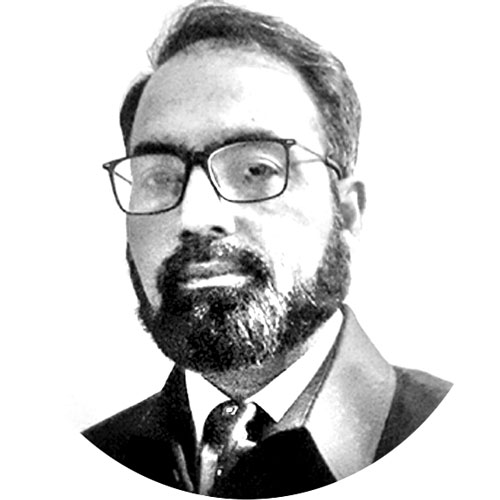Sikandar Noorani
THOUGH, corruption allegations and counter arguments are usually used as a non-serious rhetoric in day to day media debates driven mostly by the peculiar context of political rivalries prevailing in Pak society but a much serious concern prevails on this issue at global level. United Nations General Assembly designated 9 December as ‘International Anti-Corruption Day’ under its resolution 58/4 passed on 31 October 2003. As evident from the title, it aimed at raising awareness on the contentious issue of corruption and further enhancing the role of the UNO in combating and preventing the menace of corruption at global canvas. The UNGA invited active participation of all member states and their legitimate credible organizations to extend the anti-corruption war in most affected parts of the world. In 2005, UN Office on Drugs and Crime adopted a motivating slogan; “You can stop corruption” which clearly aimed at encouraging the general public to fight out the undesired dishonest practices in respective spheres of influence.
A document of the UN convention clearly spells out the real focus of the organization on wide scale ill effects of corruption on society“ UN is concerned about the seriousness of problems as well as threats posed by corruption to the stability and security of societies, undermining the institutions vis a vis values of democracy, ethical values , justice system , jeopardizing sustainable development and the rule of law” Mandate set for anti-corruption bodies can be clearly understood from this extract of the convention documents “Promote and strengthen measures to prevent and combat corruption more efficiently and effectively… promote, facilitate and support international cooperation and technical assistance in the prevention of and fight against corruption… [and] promote integrity, accountability and proper management of public affairs and public property”. In 2009, a joint international campaign was initiated to substantiate the ongoing anti-corruption efforts under the banner of UNO with a fresh meaningful slogan “Your No Counts”.
This dynamic campaign was conceived jointly by the United Nations Development Program (UNDP) and the United Nations Office on Drugs and Crime (UNODC) to multiply the anti-corruption efforts vis a vis awareness being promulgated specifically on 9th December under the title of ‘International Anti-Corruption Day’. Global consensus exists upon this very aspect that menace of corruption cannot be defeated without integrated efforts primarily from the most affected quarters of the society. Corruption should not be oversimplified with straight interpretations. Oxford dictionary describes corruption as “Dishonest or fraudulent conduct by those in power, typically involving bribery”. Merriam Webster dictionary describes three relevant meanings of corruption. First, “Dishonest or illegal behaviour especially by powerful people such as government officials or police officers”. Second, “Inducement to wrong by improper or unlawful means such as bribery”. Third, which remains equally damaging but least discussed “A departure from the original or from what is pure or correct”. We may rephrase the last one as ‘Intellectual Dishonesty’ which primarily prevails in ideological or conceptual domains.
Transparency International’s website gives a very elaborative description of this global menace “We define corruption as the abuse of entrusted power for private gain. Corruption erodes trust, weakens democracy, hampers economic development and further exacerbates inequality, poverty, social division and the environmental crisis. Exposing corruption and holding the corrupt to account can only happen if we understand the way corruption works and the systems that enable it” Transparency International has further dwelled upon the corrupt practices by describing three most common behaviours. First, public servants demanding or taking money or favours in exchange for services. Second, politicians misusing public money or granting public jobs or contracts to their sponsors, friends and families. Third, corporations bribing officials to get lucrative deals. Undoubtedly corrupt behaviours can make deep roots in every part of the society but power corridors suit them the best where abundant financial and legal authorities are the real attraction. Prominent British politician and former premier David Cameron very rightly pointed out the impact of dishonest practices “The evil of corruption reaches into every corner of the world. It lies at the heart of the most urgent problems we face”.
There can be no second opinion on this fact that most of the sufferings of Pakistan are attributable to the corrupt behaviour of the most powerful quarters of the society. In 2018, present government of PTI primarily obtained majority by creating a massive public awareness on the corrupt practices of past rulers. A cursory overview of public life and quality of governance in Pakistan makes it amply clear that uncontrolled cancer of corruption needs a major surgical and transparent accountability. Corrupt practices prevailing power circles have given birth to multiple interconnected complex issues. Ours is a unique society whose rulers rush abroad immediately after stepping down from the throne to seek a peaceful shelter. May it be lack of reliable hospitals or appropriate justice system, prolonged stay abroad of a ruler is a big proof of unsatisfactory state of corruption versus transparency. UN should focus that why most of the corrupt rulers manage to stock their looted money very easily in so called civilized and transparent countries. A country like Pakistan is exactly facing what a former Mongolian president Elbegdorj said “I see corruption as a mortal enemy for young democracies”
—The writer is a freelancer who often contributes in national newspapers.









